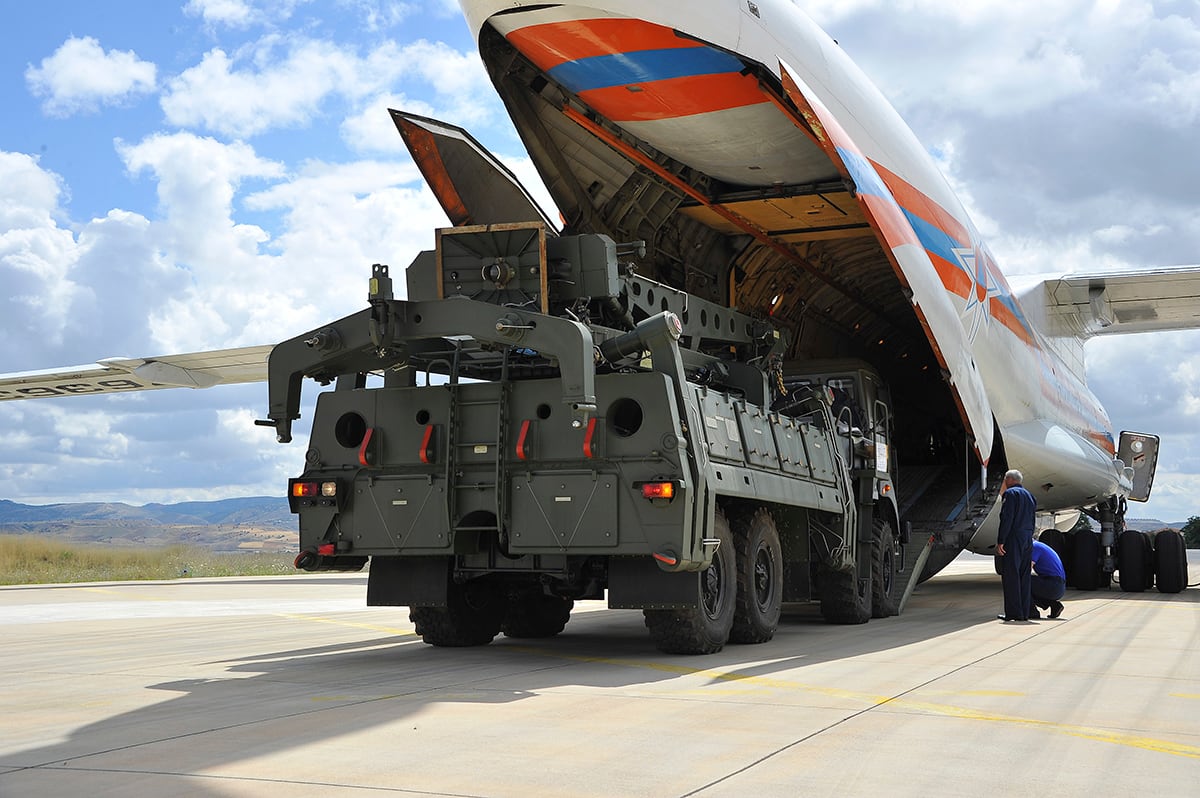WASHINGTON ― The U.S. would be able to buy Turkey’s Russian-made S-400 air defense system under legislation proposed in the Senate last week. The proposal is one powerful lawmaker’s attempt to alleviate the impasse between Washington and Ankara over the F-35 Joint Strike Fighter.
Senate Majority Whip John Thune, R-S.D., has proposed an amendment to the 2021 National Defense Authorization Act that would allow the purchase to be made using the U.S. Army’s missile procurement account. The move comes a year after the U.S. expelled NATO ally Turkey from the multinational F-35 program because it received the S-400 in a $2.5 billion deal.
However, Senate Foreign Relations Committee Chairman Jim Risch, R-Idaho, has introduced an amendment that would take a tougher stance, mandating the Trump administration implement CAATSA sanctions on Turkey within 30 days of passage of the NDAA. Risch has been critical of Turkish President Recep Tayyip Erdogan and accused him of bad faith in dealings with the U.S. over the S-400.
Under CAATSA, or the Countering America’s Adversaries Through Sanctions Act, passed in 2017, any nation procuring a major defense article from Russia should face major sanctions.
RELATED

U.S. President Donald Trump has held off imposing sanctions against Turkey for its purchase, but the sale remains a sticking point in the relationship. Erdogan has refused to give up the system, despite warnings from Washington that the S-400 could compromise the stealthy F-35.
The U.S. routinely buys foreign technology and could both exploit the S-400′s technology and test U.S. tactics, said Jim Townsend, a former Pentagon official for European and NATO policy. If Turkey doesn’t go for the idea, he said, the two countries are still stuck.
“I think the US buying the S-400s from Turkey is a clever way of getting Erdogan out of the jam he put himself in,” Townsend said. “We just want to get the system out of Turkey ... and if it enables the Turks to take part in the F-35 then all the better.”
Thune and Risch are both influential senators, but there’s no guarantee either of their amendments would receive consideration to be included in the massive NDAA ― or, if passed into the Senate bill, that they would survive negotiations with the House.
The Senate Armed Services Committee’s draft of the authorization bill already contains language pertaining to Turkey and the F-35 program. Specifically, it gives the U.S. Air Force the authority to accept, operate or even modify the six F-35A conventional-takeoff-and-landing models that were built by Lockheed Martin for Turkey but never officially delivered.
Aaron Mehta and Valerie Insinna in Washington contributed to this report.
Joe Gould was the senior Pentagon reporter for Defense News, covering the intersection of national security policy, politics and the defense industry. He had previously served as Congress reporter.








